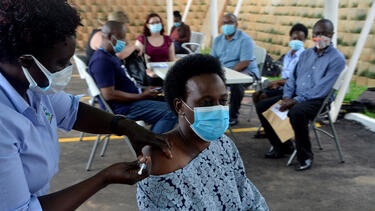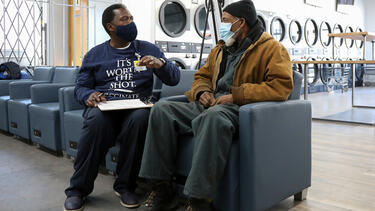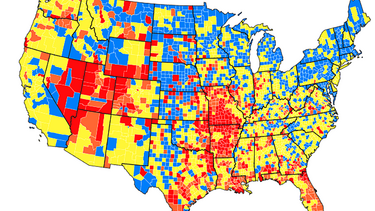All Insights Articles
How to Go Back to a Better Office
Heidi Brooks, who teaches leadership at Yale SOM and advises companies on everyday leadership and organizational culture, talks about how managers can approach this moment of transition with empathy—and have a meaningful impact at an important time.

Send Vaccines Where People Want Them: Developing Nations
COVID-19 vaccine acceptance is significantly higher in low- and middle-income countries than wealthy ones. Prioritizing those countries for vaccine distribution could help save more lives and keep variants at bay.

Could Be Worse: When You See Others Losing More, You’re More Likely to Take Risks
What induces people to take greater risks in certain situations—such as sitting at the blackjack table in a glitzy casino? A new study from Yale SOM’s Nathan Novemsky and Guy Voiche reveals that we experience losses as less painful when we see examples of bigger losses.

How the ‘Nixon Shock’ Remade the World Economy
In a new book, Yale SOM’s Jeffrey Garten explores Richard Nixon’s decision to delink the dollar from gold, which remade the global monetary system in an instant.

Why Silence Is Not Golden for CEOs
Yale SOM’s Jeffrey Sonnenfeld writes that companies have an interest in preserving democracy and other fundamental social issues, and silence is not an option for responsible CEOs.

The Fight for Healthcare Equity after COVID-19
Dr. Cecelia Calhoun ’21, a Yale physician with a focus on sickle cell disease, and Yale SOM’s Dr. Howard Forman discuss the gargantuan but critical challenge of addressing the impact of systemic racism on the health of Black Americans.

A Pandemic Landscape of Optimism and Uncertainty
Nationally, infection rates are close to their low point and many Americans are resuming their usual activities, but the more transmissible Delta variant is spreading and vaccinations are still low in some areas. We asked Yale SOM's Dr. Howard Forman where things stand now.

Uncovering Healthcare’s Hidden Climate Impact
The healthcare industry produces 8.5% of all U.S. greenhouse gas emissions as well as other forms of air pollution. Yale's Dr. Jodi Sherman says the first step to making healthcare sustainable is to understand the scope of the problem.

Can ‘Sin Taxes’ Do a Better Job?
A new study co-authored by Yale SOM’s Katja Seim examines how successful the uniform liquor tax in Pennsylvania is at generating revenue and discourage drinking, and concludes that a uniform tax leads to higher prices on products bought disproportionately in high-income areas when compared to a more variable approach, effectively subsidizing liquor consumption in low-income areas.

Did COVID-19 Restrictions on Restaurants and Bars Save Lives?
COVID-19 restrictions on restaurants, bars, gyms and salons were among the most controversial and the last to be lifted. A new study looks at whether closures, capacity restrictions, and other limits on these businesses actually lowered the death rate.
